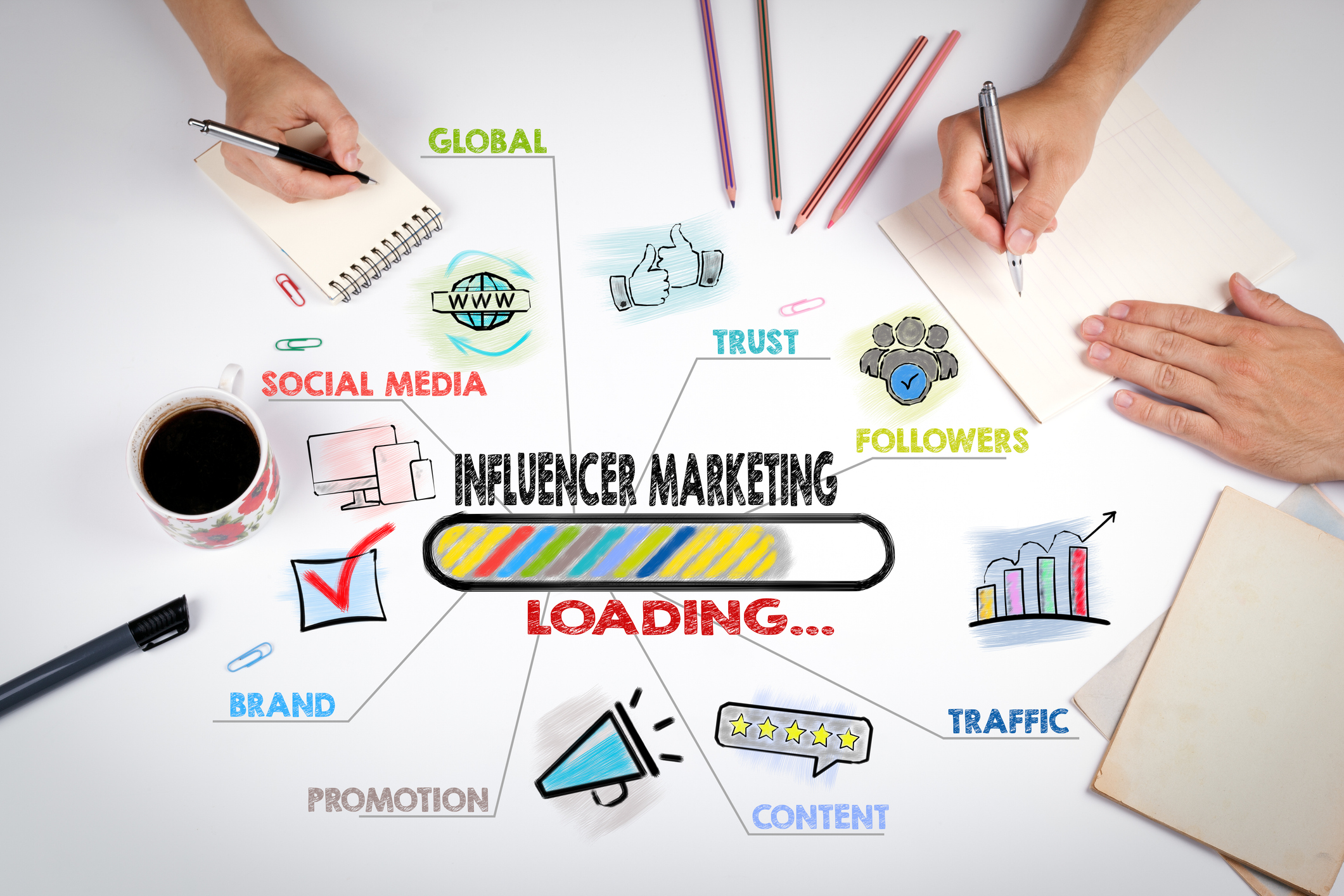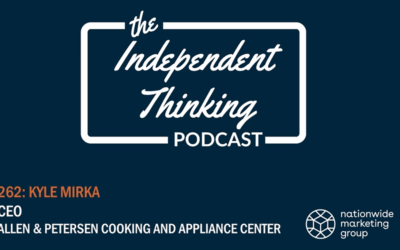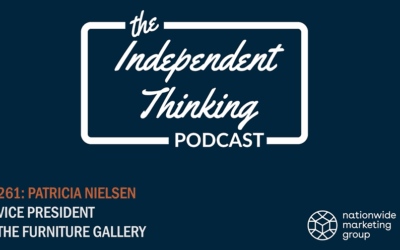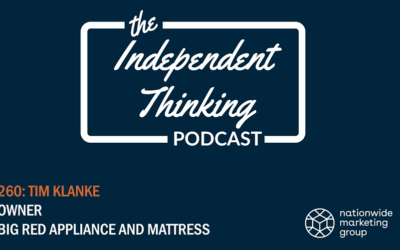Bloggers. Social media influencers. Content creators.
These modern terms describe the folks who work with brands and businesses to promote products and services to a new or larger audience. Of course, product endorsements have been around for centuries, but digital advancements and shifts in mass media have allowed for unique opportunities over the past decade when it comes to influencer marketing.
WHAT IS INFLUENCER MARKETING?
According to SEO service AHREFS, “Influencer marketing is the practice of working with influencers to promote your brand’s message, products or services.” And “influencers are people who have an active, sizable audience (usually on social media) and the ability to influence their audience to do something.”
Digital Marketers World puts it this way, “Influencer marketing is the modern, digital child of the traditional marketing approach of celebrity endorsements (e.g., the brand ambassadors) of your brand’s products.”
Since the boom of social media over the past 20 years, digital influencer marketing tactics have been adopted by companies around the world — large and small. While the actual tactics may vary, the concept remains. Find influential people who align with the messaging and values of your business — and have an audience that fits your core demographic — to achieve specific marketing and sales goals.
For national brands with big budgets, this may seem like a no-brainer. But what about Independent retailers? Can influencer marketing be beneficial for businesses targeting a highly specific community or region?
As is the case with many strategies, it depends. Factors such as target demographics, the influencer market in your area and long- and short-term business goals can all impact whether influencer marketing is right for your company.
WHO ARE LOCAL INFLUENCERS?
A local influencer or local celebrity can be any of the following types of people who live in your community and are well-liked and respected by your community:
- Blogger with a well-trafficked website
- Local athlete, musician, chef or author
- Local TV or radio personality
- Local interior designer
- Social media influencer (who may not fit into any of the above categories)
Working with local and micro influencers has become more popular over the past few years, even with larger corporations. Why? Because influencers in these categories tend to have more engaged followers.
While the exact definition of a micro influencer may vary, those considered micro typically have between 10,000 to 100,000 followers. A local influencer may fall into this follower range, or they may have more than 100,000 followers. Either way, looking at the engagement metrics on each post — likes, comments and shares — is often a far greater indicator of how much influence the influencer actually brings to the table.
Typically, social media is the primary channel of influence; however, it is possible for a blogger to have a high traffic website without a large or even micro social media following.
IS INFLUENCER MARKETING RIGHT FOR YOU?
Now that we’ve covered some of the basics, let’s get back to the real question. Can Independent retailers benefit from working with local influencers? Again, it depends, but here are three major factors to consider that will help you decide.
1. KNOW YOUR GOALS
Identifying what you hope to accomplish with influencer marketing is a necessary first step to determining if you should proceed. What are your current or future business goals and can working with an influencer help you to meet one or more of these goals?
Here are a few goals that could align with the right influencer marketing strategy.
- Increased brand awareness. A local influencer can help raise awareness of your business to their audience.
- Increased traffic in-store or online. With intentional calls to action, an influencer can help not only with awareness but also engagement and prospective customers.
- Boost sales. If your goal is to drive sales, a longer-term influencer campaign can potentially turn potential customers into loyal customers with consistent messaging and multiple touchpoints.
- Gain more social media followers. If this is one of your goals, including specific social deliverables in an agreement can help achieve it. Keep reading for more on deliverables and agreements below.
2. SHORT-TERM VS. LONG-TERM
In addition to knowing your goals, determining your timeline is important. While quick, one-off influencer partnerships can offer an immediate boost in engagement and potential customer traffic, it also may be short-lived.
To support longer-term business goals, working with an influencer often requires building and maintaining a longer-term relationship. Of course, some influencers may be more flexible than others on the duration of the partnership, which is something to keep in mind as you consider moving forward with anyone.
3. DO YOU HAVE THE CAPACITY?
Partnering with a local influencer does not need to be complicated; however, it does take dedicated time — from negotiating an agreement and handling logistics to capturing content and confirming all aspects of the agreement have been met.
Whether you can designate a specific employee on your team as an influencer project manager or approach it as a team effort, evaluating existing workloads and setting realistic expectations will help set you up for success, should you choose to pursue any influencer partnerships.
Overall, influencer marketing is not a one-size-fits-all, nor is it for every business. If you feel it could be right for your business, test the waters and don’t be afraid to get creative. Staying true to your core values and brand identity will always take you further than following the crowd or the next big thing.
Watch this interview with NMG Member Castle Rental, to hear about their NIL deal experience with a local college athlete.




